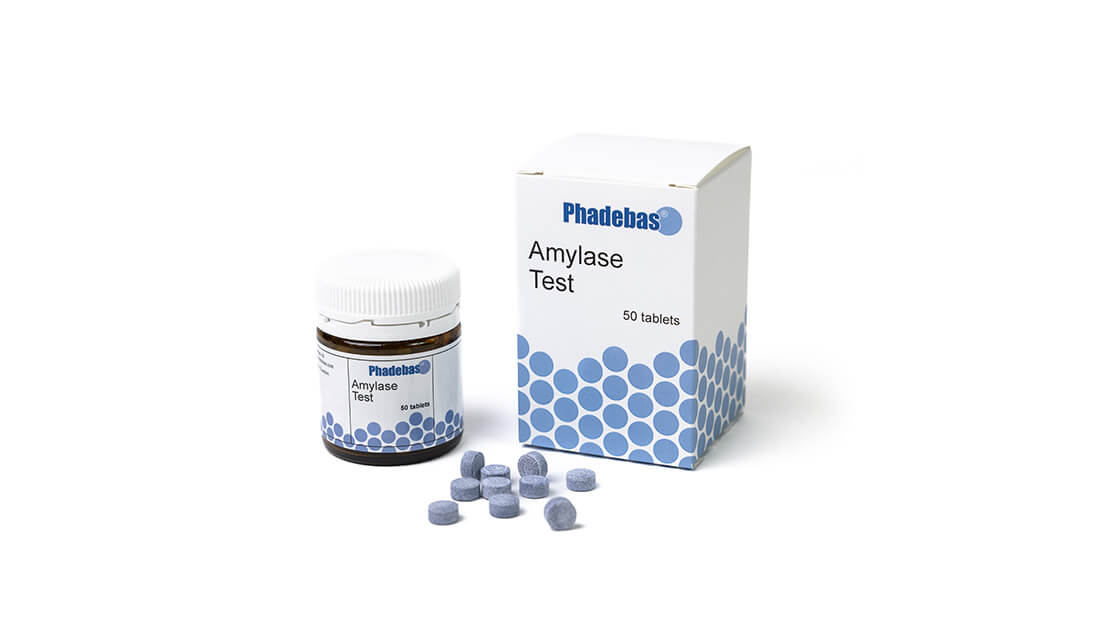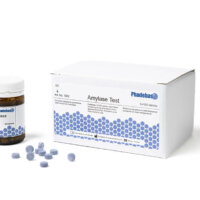Phadebas® Amylase test, 50 tablets
€133.00
Contains 50 Phadebas® Amylase Test tablets. Includes instructions for use in English, French, Spanish and German and a batch standard curve for quantitative assessment.
Description
Phadebas® Amylase test tablets are used for accurately determining α-amylase activity for a wide variety of applications, from different fields in the food industry to biotech and detergents. The test has been in the market for over 35 years and is well documented in the scientific literature. Phadebas® Amylase Test is available in two formats:
Phadebas® Instructions for Use
Instructions Phadebas® Amylase Test
(English, German, French and Spanish)
Phadebas Amylase Test instructional video
Phadebas® Safety Data Sheets
Q&A Phadebas® Amylase test
Q: Why should I choose the Phadebas test for my alpha-Amylase tests?
A: The test uses a well-defined substrate, produced under well controlled conditions. The test is well described and acknowledged in the scientific literature. The analytical performance of the test is very good, with f. ex. RSD values much better than normally expected for an enzymatic assay. Phadebas has been shown to work well with a host of very different samples and applications. The substrate is specific for alpha-amylase, hence it will not cross-react with enzymes that hydrolyse non-reducing terminal residues of starch, such as for example beta-Amylase or Invertase do. Furthermore, each kit contains a verified, batch specific standard curve for quantitative determination of the activity.
Q: Is Phadebas Amylase Test CE marked for in-vitro diagnostic use?
A: No, Phadebas is no longer marketed for the IVD market. No changes are made to the products, but we do not maintain the necessary registrations for upholding the product’s IVD status.
Q: My spectrophotometer doesn’t measure at 620 nm. What if I use 590 nm?
A: 620 nm is an absorption maxima for the chromophore of the blue dye we use in Phadebas. You will still obtain measurable results, but you will lose in sensitivity and presumably in precision. This may result in increased RSD values and if you are measuring low or very low amylase activities, we recommend using the specified wavelength.
Q: Can I analyse turbid samples?
A: Samples are often slightly turbid but if the supernatant is turbid or opaque the reading of absorbance will be affected. It may be possible to add a flocculation chemical to precipitate large molecules like fats etc. Please contact info@phadebas.com for more help or see our product Phadebas DLA2. (länk)
Q: Can I use deionised water instead of distilled?
A: Yes.


